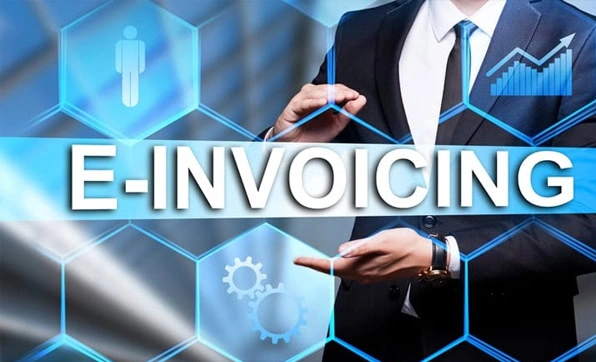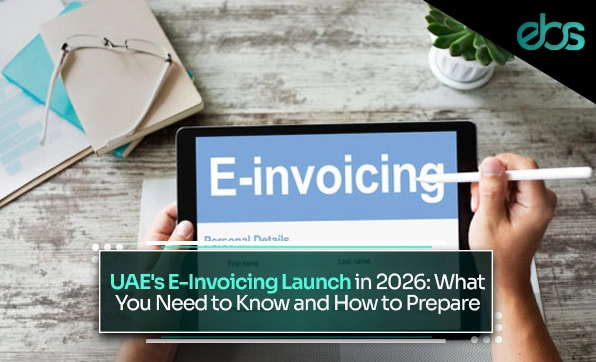In a landmark move in the direction of digitizing the nation’s financial ecosystem, the UAE Ministry of Finance (MOF) introduced in July 2023 the advanced billing framework for VAT compliance, usually referred to as e-invoicing. The e-invoicing system will appreciably streamline the invoicing process, ensure extra tax transparency, and foster compliance with the UAE’s VAT regulation. In keeping with the MOF’s timeline, the e-invoicing system is slated to roll out in phases beginning in Q2 2026.
A key improvement in this variation is the guide of Federal Decree-Law No. sixteen of 2024 on September 30, 2024, which unites the legal framework for the necessary issuance of e-invoices throughout the UAE. This new regulation will make e-invoices legally legitimate for entering tax recovery, supplying each agency and authority government with a less complicated process to conform with tax reporting requirements.
In this blog, we will discover what e-invoicing approach for companies, the advantages it brings, how the system will work, and steps your corporation must take to put together for the shift.

Objectives and Key Benefits of the e-invoicing System
The e-invoicing system aims to gain numerous key targets and offer each operational and monetary advantage for agencies. Some of the maximum big advantages include:
- Digitalizing tax compliance: The system automates VAT compliance, lowering human mistakes and improving statistical accuracy.
- Enhanced operational efficiency: Businesses will revel in fewer administrative burdens as invoices are robotically generated and transmitted.
- Increased tax transparency: With real-time reporting, the system guarantees complete transparency, making it less complicated to tune VAT obligations.
- Cost efficiency: By doing paper invoices and lowering the need for guide intervention, agencies can decrease operational costs.
- Faster fee cycles: The quicker processing of e-invoices approaches faster fee cycles, reaping rewards cash-flow.
- Global compatibility: The system integrates with global structures like PEPPOL (Pan-European Public Procurement Online), facilitating cross-border transactions.
- Data-pushed decision-making: Businesses can leverage correct and real-time statistics for higher monetary making plans and tax management.
- Automated VAT compliance: The system automates VAT calculation and reporting, lowering the threat of non-compliance.
What is e-invoicing?
e-invoicing refers to the digital trade of invoices among providers and shoppers in a dependent layout that lets in for automated processing through a corporation’s IT structures. Unlike conventional paper invoices, e-invoices are system-readable (generally in XML layout), making them lots less complicated to process, validate, and store.
The key distinction is that e-invoices are generated, transmitted, and obtained in a standardized, digital layout, lowering the guide attempt and threat of mistakes worried in conventional invoicing methods. Under the UAE’s e-invoicing framework, invoices might be required to observe a predefined shape for VAT transactions, with the intention to lead them to be completely compliant with neighborhood tax rules.
How the UAE e-invoicing System Will Work?
The UAE’s digital invoicing 2026 system will undertake the PEPPOL 5-corner decentralized model for invoice transmission, that’s usually used in lots of jurisdictions worldwide. Here’s a top-level view of the way it works:
- Corner 1 (Supplier): The supplier generates the invoice statistics via their commercial enterprise software program and sends it to an Accredited Service Provider (ASP) for validation.
- Corner 2 (ASP-VValidation): The ASP tests the invoice for compliance with UAE rules and transmits it to the buyer’s ASP.
- Corner 3 (ASP-DDelivery): The buyer’s ASP gets and forwards the invoice statistics to the buyer’s system.
- Corner 4 (Buyer): The buyer’s commercial enterprise software program gets the statistics, making sure that it aligns with their very own system requirements.
- Corner 5 (Federal Tax Authority – FTA): The FTA collects, stores, and video displays unit e-invoices in real-time for audit purposes.
The system would require agencies to partner with an authorized ASP in an effort to function as the middleman among the corporation and the UAE’s e-invoicing infrastructure. The ASP is chargeable for validating and transmitting the e-invoices, making sure compliance with the requirements set through the Ministry of Finance.
Which Taxpayers and Transactions Are in Scope?
Initially, the e-invoicing system will focus on B2B (commercial business-to-business) and B2G (business -to-government) transactions. Although B2C (business-to-consumer) transactions can be included later, they may be presently no longer a part of the scope. The system will be practiced for all taxpayers who have problems with VAT invoices, inclusive of huge corporations, SMEs, and VAT groups.
Each member of a VAT institution within the UAE will want to have a separate reference to an authorized ASP, despite the fact that they may nevertheless use the institution’s Tax Registration Number (TRN) for invoicing. Additionally, export transactions may also fall within the scope of the e-invoicing system, with precise provisions for foreign clients who might also additionally or won’t be a part of the PEPPOL network.
Timelines for Implementation
The e-invoicing rollout will arise at numerous levels, with the primary principal milestone predicted in Q2 2026, while the system will cross-stay for huge taxpayers. Here’s a top-level view of the important thing milestones:
- Q4 2024: Accreditation of Service Providers and updates to e-invoicing-associated legislation.
- Q2 2025: Further legislative updates and finalization of technical details.
- Q2 2026: Phase 1 of e-invoicing reporting is going to stay for huge agencies
This phased method guarantees that agencies have enough time to put together and modify their structures and tactics earlier than the overall implementation of the e-invoicing system.
Preparing for e-invoicing within the UAE: Key VAT Law Amendments
With the approaching creation of obligatory e-invoicing, the UAE VAT Law has been amended under Federal Decree-Law No. sixteen of 2024. Key updates include:
- Definition of e-invoices: The new regulation formalizes the idea of digital invoices that are now legally identified for VAT reporting.
- Retention necessities: E-invoices have to be retained digitally for enter VAT recovery, making sure that groups have the important evidence for tax audits.
- Penalties for non-compliance: Failure to problem e-invoices inside detailed timelines may also bring about penalties.
These amendments set the prison basis for an unbroken transition to e-invoicing, aligning groups with the wider virtual transformation targets of the UAE government.
How to Prepare for e-invoicing
To make certain an easy transition, groups must begin making ready for e-invoicing in advance.
- Assess your systems: Evaluate whether or not your cutting-edge invoicing process can accommodate e-invoices or in case you want to upgrade.
- Choose an approved ASP: Partner with an era issuer approved through the UAE Ministry of Finance to help you with the e-invoicing process.
- Train your staff: Ensure that your finance and IT groups are prepared with the expertise to address the brand new gadget.
- Update your invoicing tactics: Align your invoicing strategies with the brand new necessities to ensure complete uae e-invoice compliance with the e-invoicing system.
- Stay informed: Keep up with bulletins and steering from the MOF to make certain your commercial enterprise remains in advance of any updates or adjustments to the gadget.
Conclusion
UAE’s shift to e-invoicing in 2026 is a significant step closer to virtual transformation and progressing tax compliance. Businesses of all sizes must begin to make sure through knowledge of the uae e-invoicing requirement, by hiring an approved service-provider, and making sure that their internal methods are prepared for the adjustments in advance. By adopting e-invoicing early, groups will now no longer need to search for new policies which additionally enhance operational efficiency in this digital economy.
ebs chartered accountants in Dubai with their professional group gives tailor-made solutions to make sure compliance with e-invoicing regulations, streamline your invoicing processes, and enhance economic reporting.
FAQs
When will e-invoicing be implemented in the UAE?
e-invoicing will be phased in starting Q2 2026, with large businesses going live first.
Who is required to adopt e-invoicing in the UAE?
All VAT-registered businesses, including B2B and B2G transactions will be required to adopt e-invoicing.
What is the format for e-invoices in the UAE?
e-invoices must be issued in a machine-readable XML format, as per the UAE Ministry of Finance’s guidelines.
How will e-invoicing impact businesses?
e-invoicing will streamline VAT compliance, reduce administrative costs, and improve invoicing transparency for businesses.

